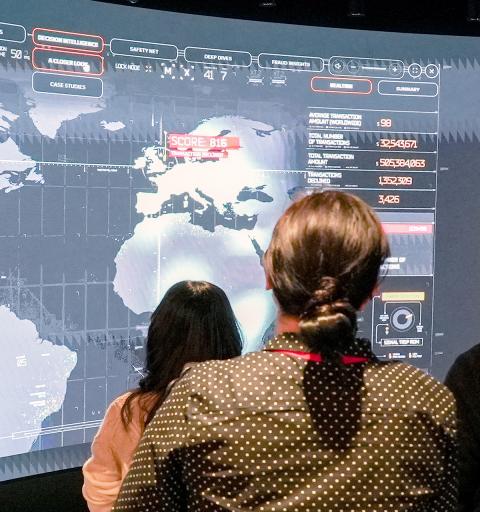
The Future is Now
Emerging technologies, like AI, are having a profound impact on how we learn, teach, work, and live, and transforming the fields and industries our students will work in. Through the Emerging Technology Collaborative (ETC), we bring students, faculty, policymakers, and industry leaders together to foster meaningful discussions, drive forward the SPS community's collective understanding of key challenges and opportunities presented by technology, and prepare students for their future workplaces.
In the Classroom
Across all our degrees and programs students will learn about the latest technology tools and trends affecting their industries and occupations. You will have opportunities for hands-on experience with the latest tools and learn what these trends will mean for you on the job. Some of our degrees and continuing education programs are specifically focused on AI, data analytics, and other emerging technologies.
In the HI Hub
The SPS Hospitality Innovation Hub (HI Hub) fosters entrepreneurship and builds tech skills as students work with faculty and industry partners to learn how to innovate in their jobs and industries.


Thought leadership
Thinking with AI - Pros and Cons — Language, Logic, and Loops






















